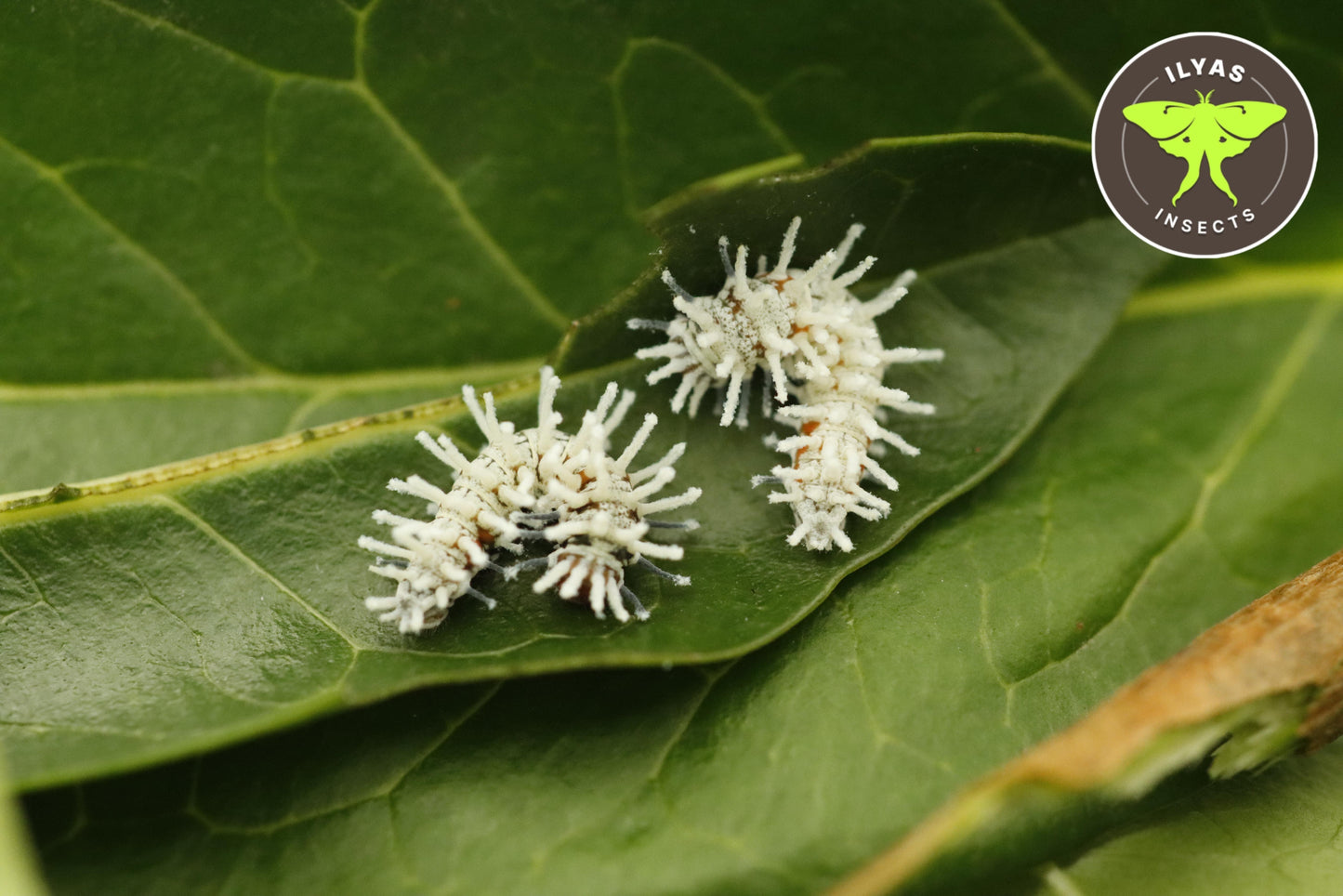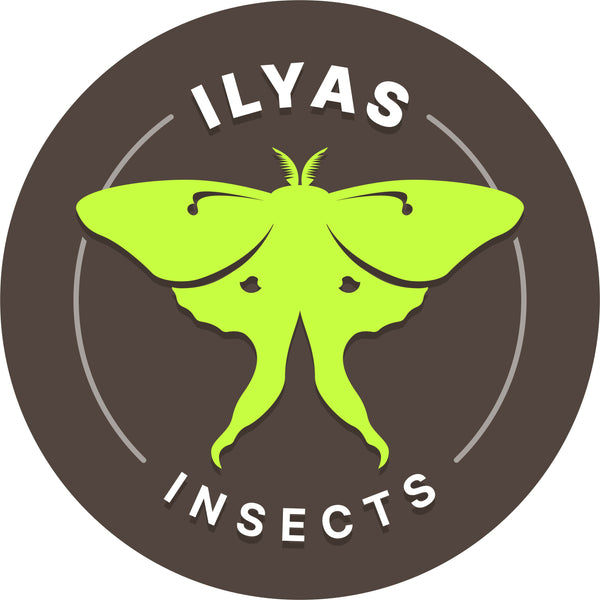Ilyas Insects
Attacus atlas
Attacus atlas
Impossible de charger la disponibilité du service de retrait
WHEN ORDERING: Please don't order caterpillars of this species if you are from UK or USA, these will most likely not pass customs.
PLEASE ADD WINTERPACKING
A large and impressive Saturniid native to tropical and subtropical regions of Southeast Asia. Known for its massive wingspan, reddish-brown coloration, and unique translucent windows on the wings. Attacus atlas is admired by breeders and collectors worldwide for its beauty, ease of rearing, and adaptability.
These moths are hardy, fast-growing, and well suited for breeding, display, and educational purposes.
Environment: Spacious mesh cage or well-ventilated enclosure for adults. Provide fresh host plant branches in water or containers for larvae. Cocoons can remain hanging or be placed in open boxes with good airflow until emergence.
Humidity: Moderate to high (around 60–70 %). Light misting is recommended once or twice a day, but avoid excess moisture and ensure ventilation to prevent mold, especially near cocoons.
Temperature: 20–28 °C is ideal. Cooler conditions will slow development, while higher temperatures may shorten the life cycle.
Eggs: Females lay 100–200 eggs on leaves or cage surfaces. Keep eggs in a small ventilated box at 25–28 °C and moderate humidity. Light daily misting keeps them from drying out. Eggs hatch after 10–14 days depending on temperature.
Diet (larvae): The larvae feed on a wide range of host plants, including Ligustrum (privet), Prunus sp for example laurocerasus (cherry trees) Ailanthus (tree of heaven), Citrus, Prunus, Malus, Liquidambar, Persea americana (avocado), and several others. Offer fresh, pesticide-free cut branches in water and replace them regularly.
Behavior: Larvae are solitary, large, and feed voraciously. They go through five instars before spinning large, papery cocoons attached to branches or leaves. The pupal stage usually lasts 3–4 weeks at room temperature, though diapause may occur in cooler conditions. Adults are short-lived, do not feed, and display their impressive wingspan mainly for reproduction.
Partager









